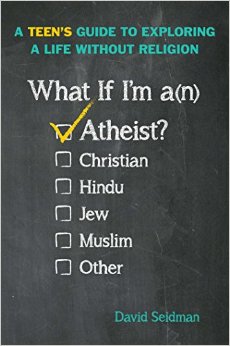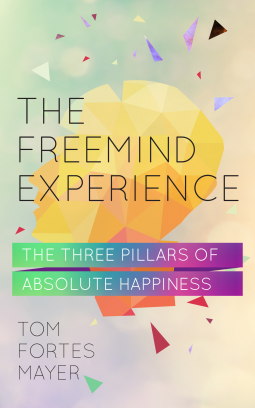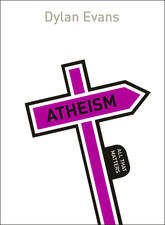Download The Free Guide
Discover practical conversation skills to get unbelievers thinking and make way for the Spirit’s work in their lives.
"*" indicates required fields
Atheism has been at the forefront of American consciousness since 9/11, because of its supposed ability to lead us to a religion-less utopia. The decade of attention on the “new atheism” has passed, yet atheistic literature shows no signs of slowing down. For Christians to effectively give an answer to the attacks of atheism, we must read what atheists are writing. Here are a few of the latest offerings from the world of unbelief.
 What If I’m a(n) Atheist?: A Teen’s Guide to Exploring a Life Without Religion by David Seidman (Simon & Schuster Ebook, 2015).
What If I’m a(n) Atheist?: A Teen’s Guide to Exploring a Life Without Religion by David Seidman (Simon & Schuster Ebook, 2015).
Here is an interesting ebook for adolescents that compares telling others about their atheism to coming out of the closet as gay. It even prepares the “awakened” teen to be thrown out of the house, and gives guidance on finding a shelter for runaway teens. It begins with instructions on how to tell your parents calmly, while allaying the fears of teen atheists that their father will kill them. Of course, the worst stereotypes of family, Christians, and friends are portrayed and extreme and hateful reactions are to be expected, says the author. The one sanctuary for an emerging atheist is university, where the teen can expect to find more accepting attitudes. Evaluation: If an atheist wanted to reasonably explore unbelief, this book would not be the place to go. The utter lack of objectivity in dealing with unbelief is more propaganda than instruction manual.
 The Freemind Experience: The Three Pillars of Absolute Happiness by Tom Fortes Mayer (Watkins Publishing, 2015).
The Freemind Experience: The Three Pillars of Absolute Happiness by Tom Fortes Mayer (Watkins Publishing, 2015).
Many atheists proudly advocate the non-necessity of God for finding fulfillment and human flourishing. In The Freemind Experience Tom Mayer wants readers to nourish themselves so they can bring themselves into alignment with their greatest values and unleash their ultimate potential. This is important for Christians to understand. Atheism is not simply about opposing religion and belief in God; it is an attempt to live life to the fullest without God. Mayer seems to borrow material right out of Jim Carrey’s move Yes Man when he writes about overcoming negativity and bringing a deep and strongly held sense of “YES” to everything. This is the path to total unconditional love and the foundation of absolute happiness. Mayer’s suggestions sound like self-help affirmations: YES #1: You are fully at peace with everything that has ever happened to you. [But what if you are not?]. YES #2: You are therefore fully at peace with who you are. YES #3: You meet the present with a full and happy heart that the universe and everything in it is happening in the perfect way at the perfect time. A Christian can see this is a parasitic counterfeit of the gospel of Christ. It is parasitic because it has to borrow themes of peace, identity, and sovereignty from Christianity. It is counterfeit, because wishful thinking can provide none of these things. Evaluation: This book is a good read if you want to understand the mindset of the atheist when it comes to his awareness of the brokenness of the Fall, and the fruitless search for restoration apart from Christ.
 Atheism: All That Matters by Dylan Evans (Hodder & Stoughton, 2014)
Atheism: All That Matters by Dylan Evans (Hodder & Stoughton, 2014)
Of the three books reviewed here, this one is the most reasonable summary of atheism. It systematically works through topics such as the history of unbelief, the psychology of belief, and atheism and ethics. In describing the psychology of belief, Evans gives the common evolutionary explanation that belief is a useful cognitive behavior that may aid in survival. Evans notes that cognitive biases tend to predispose people to believe in gods, while no cognitive bias favors atheism. Interestingly, he argues that only a Calvinistic view of sovereignty can explain man’s predisposition to belief in God. He states that children are “cognitively prepared” for belief, even before they are exposed to religion. “This poses a serious challenge to the Christian notion that the creator has left his creatures free to disbelieve. A Christian who accepts the evidence from psychology would have to conceded that, on the contrary, the creator has endowed the human mind with a strong innate tendency to believe in him. It would appear that the creator has heavily loaded the dice in his favor.” Bingo! Evaluation: This book is the best of the three to gain an understanding of atheism from an objective viewpoint of an atheist himself.
By Brandon Anchant, Intern In today’s Christian community, there exists a pervasive atmosphere of a pharisaical mindset. This mindset is characterized by...
By Brandon Anchant, Intern I was speaking with my friend Ralph at the climbing gym where I work. He is a sixty-something Englishman with a rather spicy...
In history, unbelief has taken multiple forms. Many people grapple with questions about faith, spirituality, and the existence of God. In this blog, we will explore the top three reasons for unbelief, drawing insights from a compelling conversation between Pastor Jeff Durbin and an atheist at an anti-abortion rally.